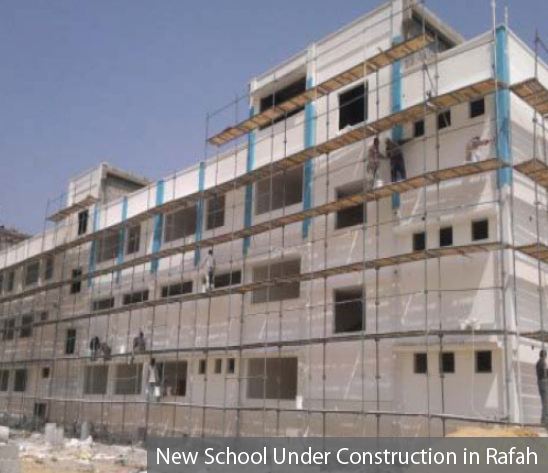UPDATES
Israel’s Blockade and Construction Materials for Gaza
January 4, 2013 | Tzvi Fleischer

Everyone knows that, while Israel has eased its blockade of Hamas-ruled Gaza, it is still blocking the import of almost all construction materials, arguing they can be used for military purposes, right?
You would certainly think so if you read the Australian and New Zealand press coverage of a recent deal between Israel and Egypt to allow 20 trucks worth of construction material into Gaza this week.
For instance, New Zealand sources (see here and here) widely reprinted an Associated Press story claiming that the shipment meant that Israel has ended “its five-year ban on construction materials crossing into the territory.”
Other stories also gave the same impression (unless you read them very closely) without making quite such categorical claims about a complete “ban” on such materials. For example, here are the story from SkyNews and the story printed by both the Age and Sydney Morning Herald.
But it is just not true that Israel has banned construction materials entering into Gaza. Israel has actually allowed many thousands of tons of construction material into Gaza over recent years – but has restricted such imports to projects overseen by international agencies able to ensure that the material is not used to build bunkers or other military infrastructure. Not allowed was imports for private Gaza-based businesses or to be sold on the general market there, on the assumption that the materials were likely to be used for military purposes unless overseen by bodies outside Hamas’ control. And so the Associated Press has had to issue a clarification, noting:
The story should have made clear that the ban applied to Gaza’s private sector. Under the closure, imposed following the Hamas militant group’s takeover of Gaza in June 2007, Israel allowed small amounts of construction goods into Gaza for humanitarian projects. In 2010 it began allowing such materials for projects under the auspices of the United Nations. Monday’s announcement by Israel, part of a cease-fire deal reached with Hamas in November, further eases the ban by allowing private businesses to ship in building materials.
But as always with such cases, clarifications and corrections are of limited use, as they are generally only seen by small proportions of those who saw the original story.
Meanwhile, it’s worth putting some numbers on the large scale of materials and projects that all the stories noted above chose to ignore. Fortunately, in response to a similarly erroneous story in the Guardian, Adam Levick of the website CIFwatch has done the hard work of putting these together, based on information released by Israel’s Coordinator of Government Activities in the Territories (COGAT):
Since 2010 … out of 268 submitted [Gaza] construction proposals by the PA (in conjunction with international sponsors) 235 were approved.
Such projects include housing, schools, clinics, roads, agricultural installations and other civilian infrastructure.According to COGAT, the only ones not implemented on the ground have been those in which the sponsor didn’t have the funds.
Here’s a breakdown of the material. (The numbers cited below represent the amount of construction materials, in tons.)

Here is a further breakdown of what has been built, or is in the process of being built, in Gaza with construction materials sent since 2010, quantified above.
- 1900 housing units completed or underway
- 14 health clinics completed or underway
- 42 schools (new or renovated) completed or underway
- 22 water and sewage projects
- 10 new roads
Tzvi Fleischer
Tags: Israel





